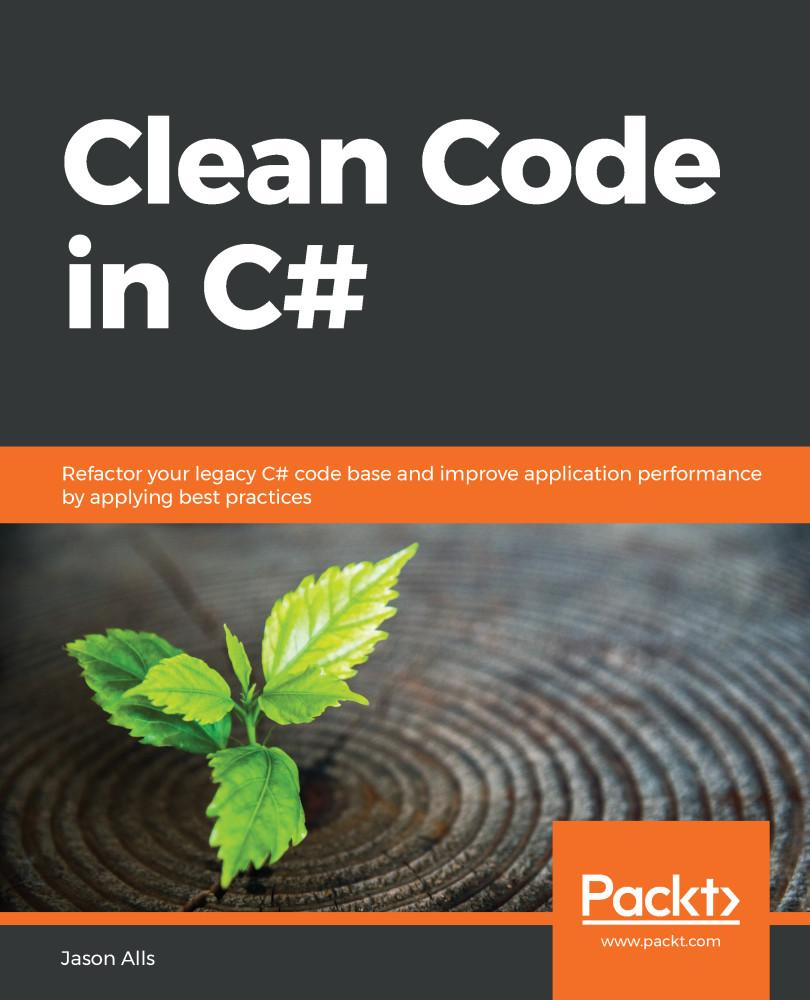- What do you call a method that has no parameters?
- What do you call a method that has one parameter?
- What do you call a method that has two parameters?
- What do you call a method that has three parameters?
- What do you call a method that has more than three parameters?
- What two method types should be avoided and why?
- In layman's terms, what is functional programming?
- What are some advantages of functional programming?
- Name one disadvantage of functional programming.
- What is WET code, and why should it be avoided?
- What is DRY code, and why should you use it?
- How do you DRY out WET code?
- Why should methods be as small as possible?
- How do you implement validation without having to implement try/catch blocks?
-
Book Overview & Buying

-
Table Of Contents

Clean Code in C#
By :

Clean Code in C#
By:
Overview of this book
Traditionally associated with developing Windows desktop applications and games, C# is now used in a wide variety of domains, such as web and cloud apps, and has become increasingly popular for mobile development. Despite its extensive coding features, professionals experience problems related to efficiency, scalability, and maintainability because of bad code. Clean Code in C# will help you identify these problems and solve them using coding best practices.
The book starts with a comparison of good and bad code, helping you understand the importance of coding standards, principles, and methodologies. You’ll then get to grips with code reviews and their role in improving your code while ensuring that you adhere to industry-recognized coding standards. This C# book covers unit testing, delves into test-driven development, and addresses cross-cutting concerns. You’ll explore good programming practices for objects, data structures, exception handling, and other aspects of writing C# computer programs. Once you’ve studied API design and discovered tools for improving code quality, you’ll look at examples of bad code and understand which coding practices you should avoid.
By the end of this clean code book, you’ll have the developed skills you need in order to apply industry-approved coding practices to write clean, readable, extendable, and maintainable C# code.
Table of Contents (17 chapters)
Preface
Coding Standards and Principles in C#
 Free Chapter
Free Chapter
Code Review – Process and Importance
Classes, Objects, and Data Structures
Writing Clean Functions
Exception Handling
Unit Testing
End-to-End System Testing
Threading and Concurrency
Designing and Developing APIs
Securing APIs with API Keys and Azure Key Vault
Addressing Cross-Cutting Concerns
Using Tools to Improve Code Quality
Refactoring C# Code – Identifying Code Smells
Refactoring C# Code – Implementing Design Patterns
Assessments
Other Books You May Enjoy
